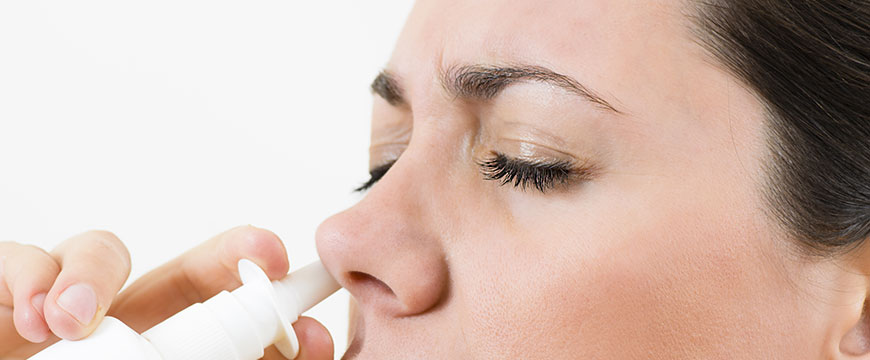
While asthma is a common illness, persistent asthmatic symptoms indicate underlying issues. If you live in an unsanitary environment or have immunological concerns, see your allergy doctor immediately for a rapid diagnosis of recurring asthmatic allergic onsets.
Asthma attacks frequently trigger allergies, leading to nasopharyngeal choking, fast inflammation, and severe breathing problems.
While these attacks can also occur due to brief interaction with suspected allergens or the consumption of restricted foods, asthmatic allergic reactions pose substantial hazards.
How does asthma trigger allergies?
When your bronchioles detect prospective allergens, asthma attacks begin. It results in a frenzied reaction that interferes with your natural respiration.
The reaction often triggers a coping mechanism. When your IgE attaches to these foreign antigens, your allergies worsen. As a result, bronchial irritation and blockage occur.
Because of a hypersensitive immune system, such reactions are frequently immunological.
Asthma flare-ups can also cause allergic reactions if you breathe in potentially allergenic air. Furthermore, long-term exposure to cigarette smoke, pollution, and work dangers makes you prone to recurring asthmatic allergic reactions.
Common allergens that can cause allergic asthma
You can find allergens everywhere, both indoors and outdoors. Some of the common allergens include:
Dander: These are microscopic flakes of dead skin cells shed by animals, most notably cats, dogs, and birds. When an animal sheds or grooms itself, these flakes can be found in its fur or feathers and spread throughout the living environment.
Dander can cause an allergic reaction when inhaled or comes into touch with the skin, making it a common allergen for some people. Sneezing, runny nose, itchy eyes, and skin rash are all dander allergy symptoms.
Regular cleaning, air filtration, and grooming can help reduce dander in the home and prevent allergic symptoms.
Mold: Typically found in moist areas (basements), mold creates spores that enter the air and can aggravate your asthma.
House dust mites: Dust mites resemble spiders and reside on your home’s soft surfaces (carpets, furniture covers, and clothes).
Cockroaches: These pests can be found in various dwellings, and their feces, saliva, and other body parts may cause your asthma to flare up.
Seasonal allergies. These affect some people and appear at certain times of the year. Because of the blossoming of numerous plants, this is frequently associated with spring. More pollen is in the air during this time of year than in other seasons (fall or winter).
Allergic asthma symptoms
Many symptoms associated with other types of asthma may occur if you have allergic asthma. Among these signs are:
- Feeling out of breath.
- Coughing a lot, especially at night.
- Wheezing (a whistling sound made while breathing).
- Feeling tight in the chest (as if something is crushing or squeezing your chest).
During an asthma episode, these symptoms can be severe. If you have severe asthma symptoms, ensure you have a treatment plan, including an asthma inhaler.
You may also feel symptoms similar to allergies. These are typically milder than asthma symptoms and can occur when exposed to an allergen. Among these signs are:
- A congested nose.
- Itchy or watery eyes.
- Sneezing.
- A rash with hives.
How to diagnose allergic asthma
Your healthcare provider can perform a variety of tests to identify allergic asthma. The healthcare provider will most likely undertake a blood or skin test.
Your provider will search for the influence of allergens on your body during these examinations. Possible allergens may be put on small areas of your skin for a skin test to evaluate how you react to each one. This is unpleasant, but it will show your provider what is causing the reaction.
The healthcare provider can also do other tests to ensure that your symptoms are caused by asthma, not another medical condition.
Most of the common asthma diagnostic tests that the healthcare provider can undertake include:
Spirometry: This breathing test involves inhaling deeply and then expelling into a tube. This tube is linked to a computer, which collects data on how well the air travels when you breathe in and out.
Spirometry can also be performed while using a bronchodilator. This test variation assesses how well your airways relax before and after medication administration. During the test, you must exhale as strongly and quickly as possible into the tube.
Bronchoprovocation test: It is similar to allergy testing on your skin in that your physician will introduce potential allergens to determine the source of the problem.
The test is done in a controlled environment, and minimal samples are used to avoid a large, lethal reaction.
Exhaled nitric oxide test (FeNO test): Your healthcare provider measures the amount of nitric oxide in your breath when you exhale. While the test can be administered in any situation, it’s best suited for milder situations of allergic asthma when you do not experience severe symptoms. This is because the highly sensitive test will pick up even small amounts of nitric oxide.
When you have allergic asthma, whatever you breathe in usually causes your symptoms. Identifying the allergen that caused your symptoms is another step in the allergic asthma diagnosis procedure.
To make it easy for your allergist Manassas VA, keep a notebook or take notes about what happened when you had asthma symptoms.
It could be a pollen allergy if you were outside near recently cut grass. It might be a pet dander if you were caressing a dog.
Knowing what you inhaled when your symptoms first appeared will assist your provider in developing a plan to control your allergic asthma.
How to manage allergic asthma
To decrease and avoid further worsening of the symptoms, asthma allergy treatment must include therapeutic and preventive measures.
It involves defense against allergens and contaminants that can aggravate your pulmonary system.
Your doctor uses antihistamines and leukotriene modifiers to treat asthmatic allergic responses. The purpose of the medication is to prevent the immune system from flooding your body with histamines when it detects foreign antigens, which is common among asthma patients who live in polluted environments.
Immunotherapy lowers your hypersensitive IgE complex, which causes allergic reactions when foreign antigens enter your body. It’s not about decreasing your defenses but temporarily lowering them to aid recovery from asthmatic allergic reactions.








